Environment Challenge for Schools - 2018
Environment Challenge for Schools
A collaboration between NEA with IMDA and ITE College Central
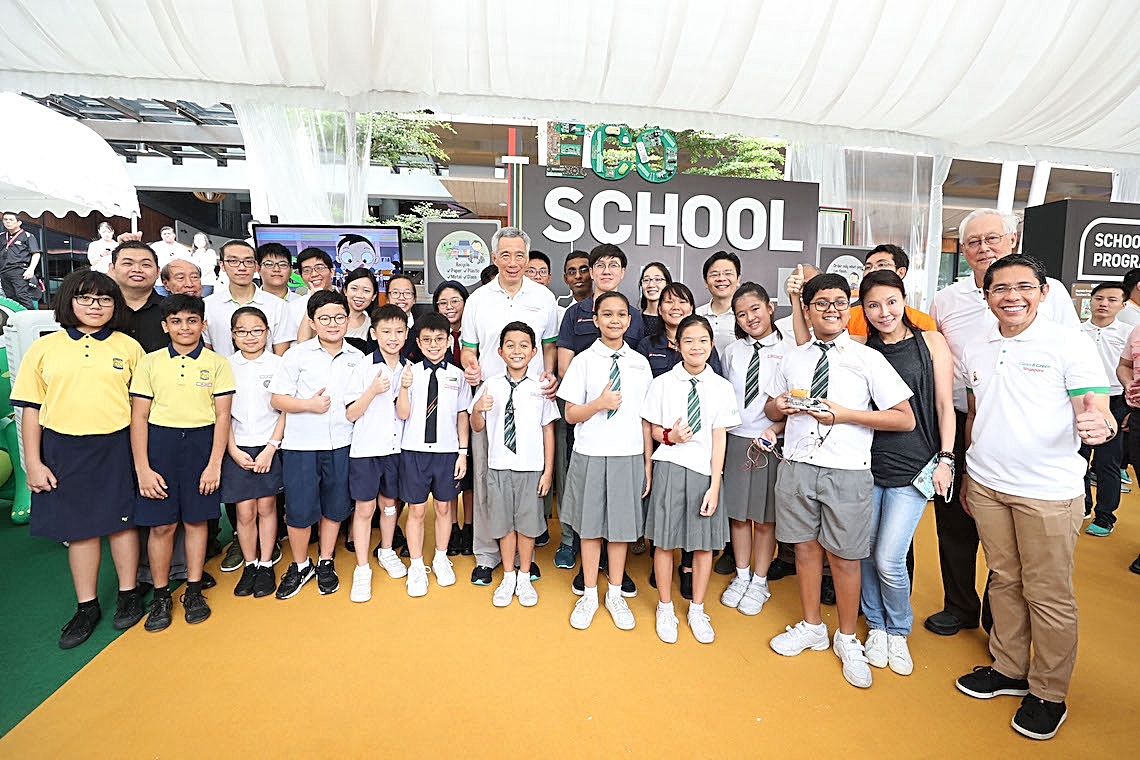 Prime Minister Lee Hsien Loong with some of the participants in the ECS
Prime Minister Lee Hsien Loong with some of the participants in the ECS
The Environment Challenge for Schools (ECS) is a collaboration between NEA with IMDA and ITE College Central. It is a national-level competition where schools partner with organisations from any of the 3P (People, Public and Private) sectors to co-create solutions to solve local environmental challenges.
This competition aims to inculcate good environmental and social values amongst students by increasing their awareness of environmental challenges faced by their local community. Students are encouraged to respond to these challenges by engaging their community and developing solutions.
Last year’s ECS posed two challenge themes - ‘Cleanliness’ and ‘Waste Minimisation’. The winning teams presented very creative projects such as a litter-picking tool, a mobile app that tracks the expiry dates of food items, an auto-tray return robot and even a waste reduction reward system!
For ECS 2018, participating schools kept the spirit of creativity and innovation by showcasing their imaginative yet practical ideas for this year’s theme: Climate Action.
2018 was designated as the Year of Climate Action to raise national awareness about climate change and the need for individual and collective effort to mitigate its effect.
“We must consider the far reaching implications of climate change for our city, our economy and our people.”
Our youth are our future, so it is important to encourage our young students to take action and fight climate change for a sustainable future. ECS 2018 challenged the participating students to use the micro:bit to create solutions for a more carbon-efficient Singapore.
The winning teams for ECS 2018 showcased their outstanding projects at Clean and Green Singapore (CGS) Carnival held on 3 & 4 November 2018 at Wisma Geylang Serai.The winning teams were proud to present their projects to Guest of Honour Prime Minister Lee Hsien Loong as he visited the booths and interacted with the students. PM Lee also witnessed the micro:bits in action, providing solutions to real-world problems.
PM Lee emphasized: “We must consider the far reaching implications of climate change for our city, our economy and our people.” He urged everyone to be gracious and considerate to those who share our living spaces and environment.
Here are some of the winning teams and their projects:
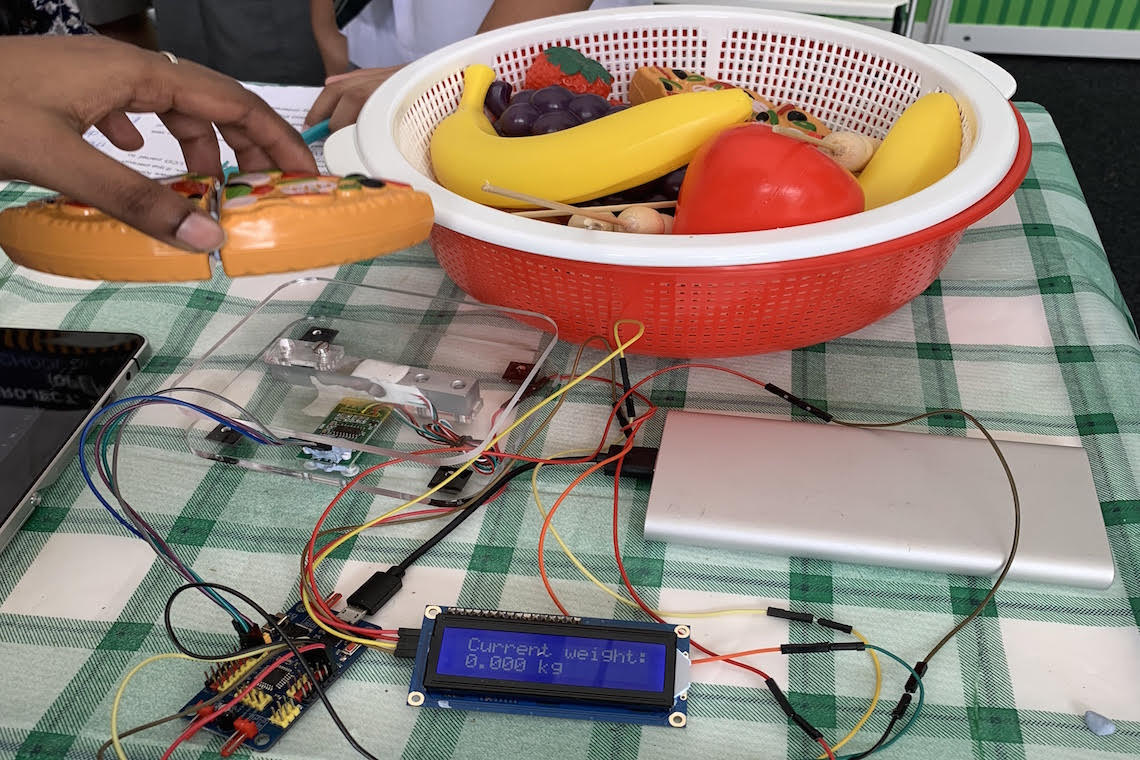
Primary School Category Best Project winner: Greendale Primary School with corporate partner Ricoh (Singapore) Pte Ltd
Project Details: The school worked to reduce food waste by reminding people each time they throw food away via a display attached to their food waste bin. If the food thrown by any one student (or teacher) exceeds 30g, a message is displayed to remind them to waste less food.
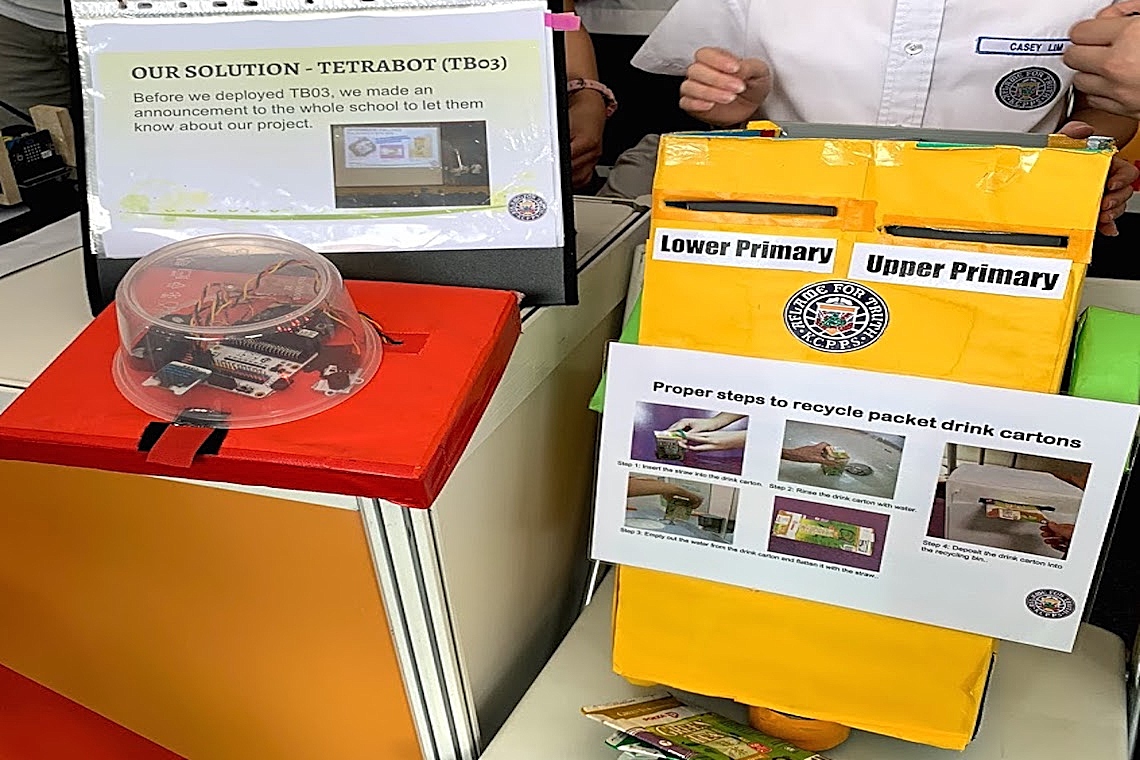
Primary School Category Merit Award winner: Kuo Chuan Presbyterian Primary School with corporate partner Tetra Pak & Green Sproutz Singapore
Project Details: Their project uses a line-following robot they dubbed Tetrabot03 (TB03) to teach and motivate pupils in the school to recycle packet drink cartons by counting the number of cartons recycled.
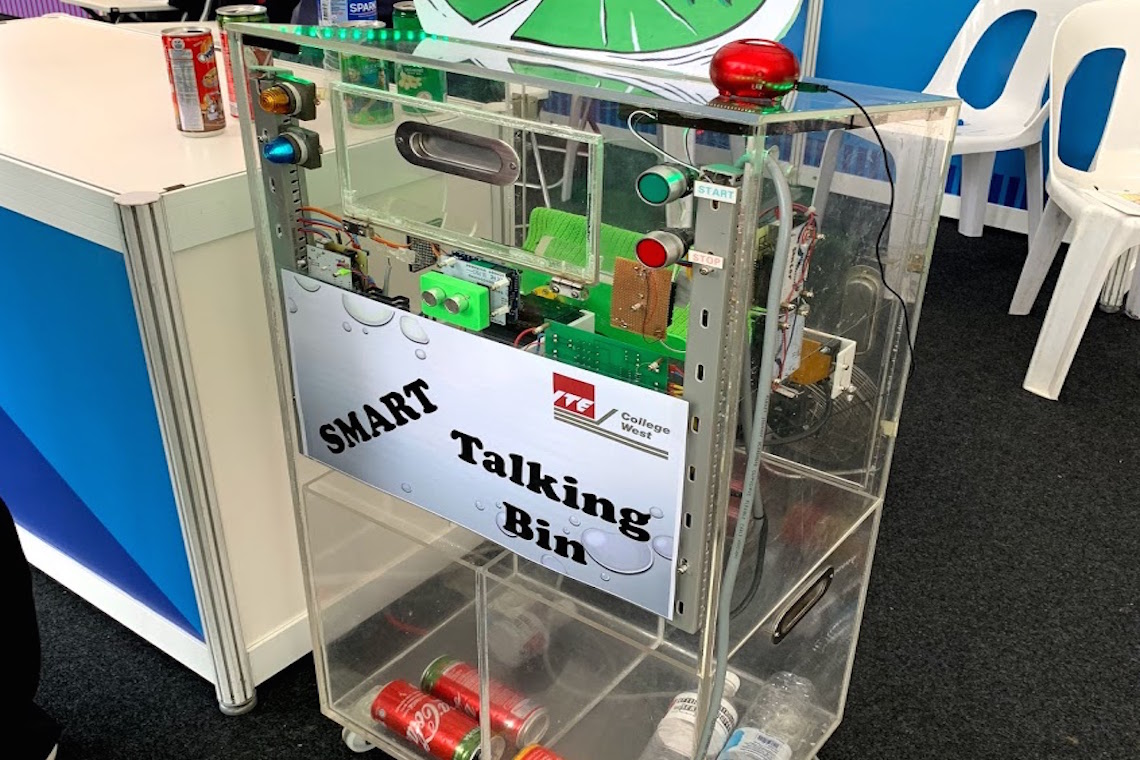
Open Category Merit Award winner: ITE College West with corporate partner ZAP Piling Pte Ltd
Project Details: Their Smart Talking Bin talks and shows facial expressions while sorting waste to encourage more people to recycle and reduce climate change. Thanks to micro:bits, the project could be designed in modular form to make it customisable and easily adaptable to engage different groups of people
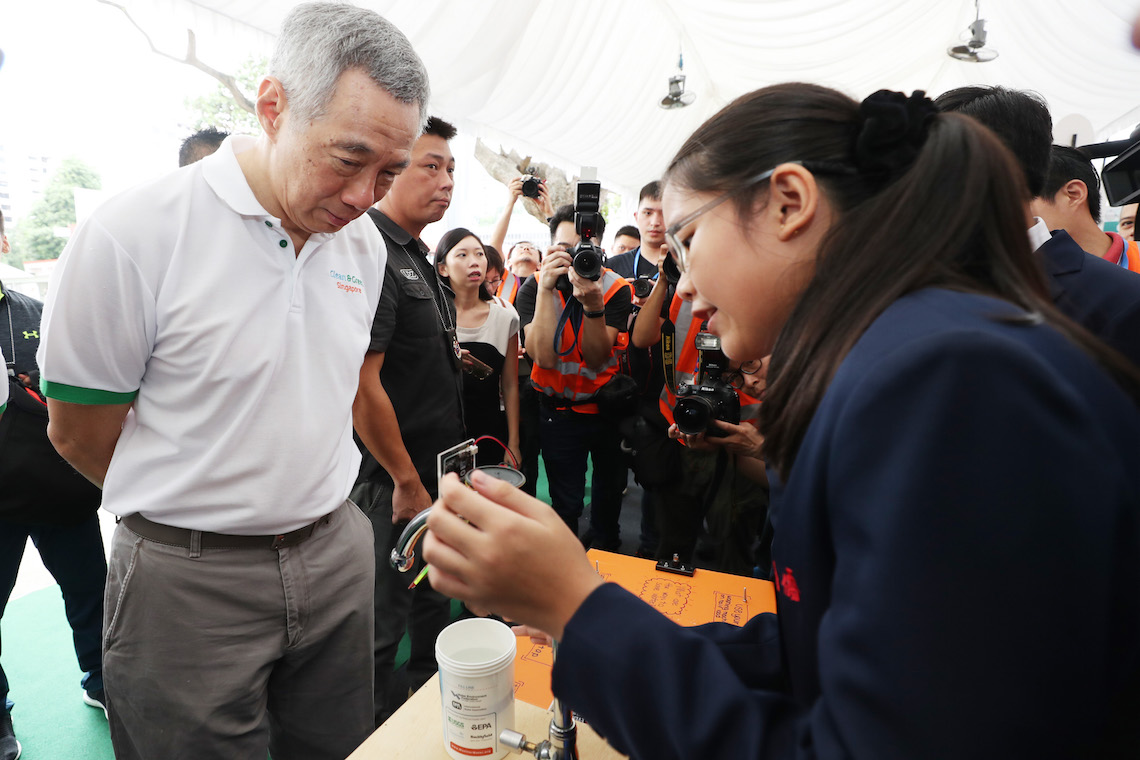
Open category Merit Award winner: Nan Chiau High School with corporate partner Canact Pte Ltd
Project Details: Inspired after attending the PUB ABC waters learning trail, the team created a water sensor prototype with micro:bit programming that can be installed at the tap to remind people of water-saving habits.
ECS 2018 has given the students invaluable experience, not just in terms of digital making and mirco:bit programming , but also through their collaboration with partners outside of their schools. Most importantly, the digital making process showed our young generation that despite their young age, they can contribute meaningfully to solving real-world problems as significant as climate change.
For more information, please visit the following:
Environment Challenge for Schools:
https://www.cgs.sg/programmes/school-programmes/environment-challenge-for-schools
Digital Maker Programme and micro:bit:
https://www.imda.gov.sg/digitalmaker

